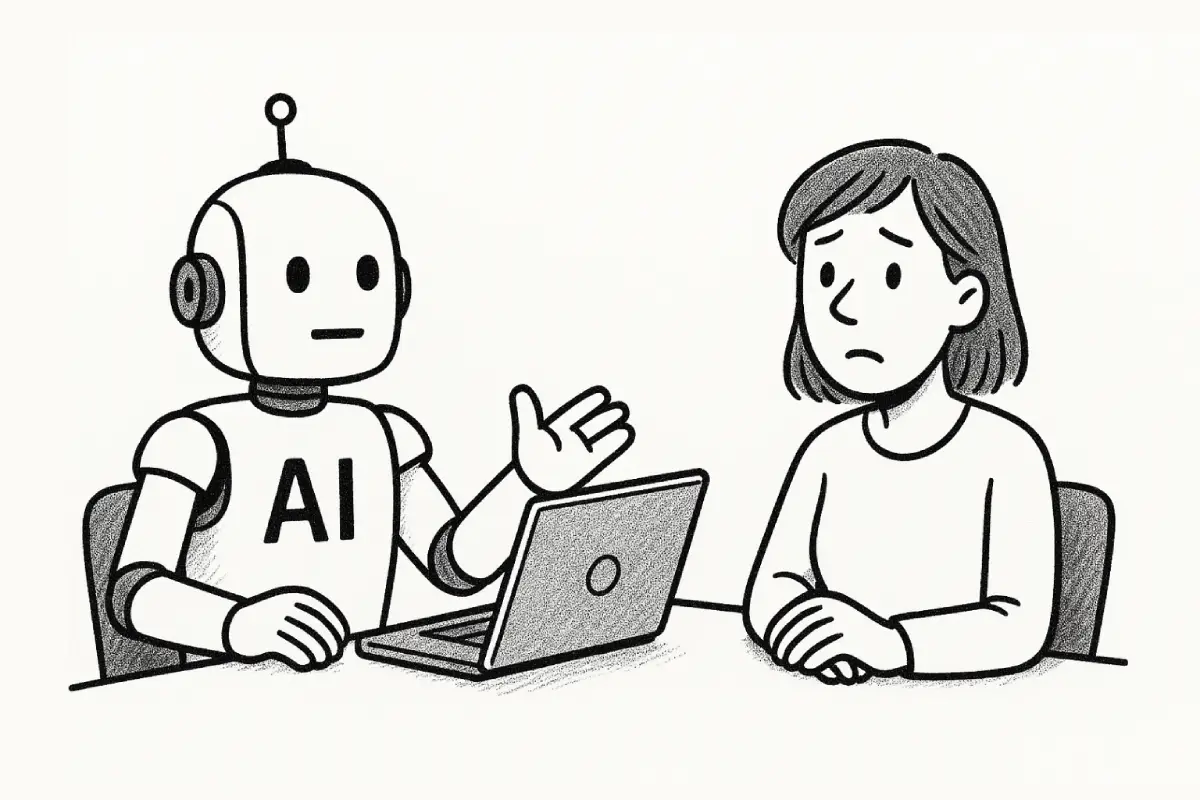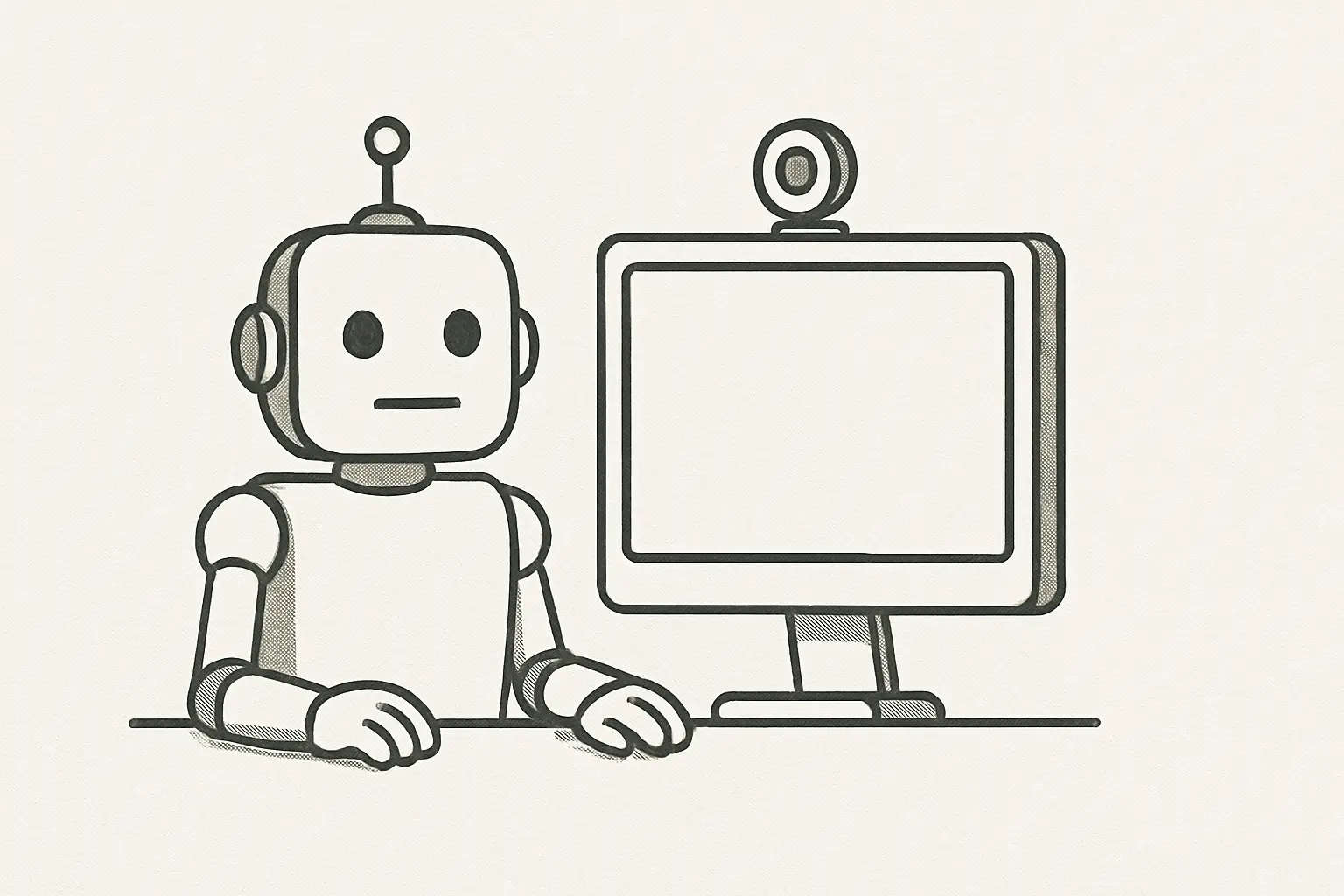Three years ago, I sat in a brightly lit conference room (back when we still did that daily) and listened to our VP of People announce the death of the university degree.
“We are moving to a skills-first model,” she said, tapping a slide deck that featured stock photos of diverse, happy people coding in coffee shops. “We don’t care how you learned it. We just care that you can do it.”
I nodded. Everyone nodded. It felt progressive, modern, and inevitable.
And then, for the next two years, we proceeded to hire almost exclusively people with four-year degrees.
It wasn’t that we were malicious. We were just tired, risk-averse, and completely unequipped to evaluate “skills” without the convenient shorthand of a university brand name. When you have 400 applicants for a junior designer role, and 50 of them went to Parsons or RISD, and the other 350 have “Google Certificate” listed under education, the lazy part of your brain takes the wheel.
But something shifted in the last eighteen months. The conversation about remote skill development changed from a corporate PR talking point into a messy, pragmatic reality. We stopped pretending that a Coursera badge is the same as a diploma, and we started looking for something else entirely.
I’ve spent the last decade hiring creatives and tech leads, and I’ve watched the “remote learner” evolve from an anomaly into a distinct archetype. Here is what that shift actually looks like from the other side of the interview table—stripped of the LinkedIn thought-leadership fluff.
The Death of the “Certificate Collector”
In 2021, my inbox was flooded with what I call “Certificate Collectors.” These were candidates who had spent the pandemic acquiring badges like they were collecting Infinity Stones. Introduction to UX Design. Advanced Python for Everybody. Agile Methodology 101.
I interviewed a guy—let’s call him Marcus—who was arguably the most “certified” candidate I’d ever seen. On paper, he was a machine. He had completed every remote learning track available.
“Tell me about a time you had to compromise on a design because of technical constraints,” I asked him.
He blinked. “Well, in the Google course, module 4, we discussed technical constraints…”
“No,” I said. “I mean you. When did you face that?”
He hadn’t. He had watched hours of video content about swimming, but he had never actually gotten wet. I didn’t hire Marcus. I hired a woman who had dropped out of community college but sent me a link to a terrible, ugly, fully functional app she built to help her grandmother track knitting patterns.
This is the first major shift in acceptability: Employers have stopped trusting the “completed course” metric.
We realized that remote learning is passive. Remote skill development must be active. If your resume lists five different bootcamps but your portfolio looks like a template, you are now less hireable than you were five years ago. We’ve become immune to the badges. We now treat them like textbook receipts—proof you bought the materials, not proof you read them.
The “Show, Don’t Tell” Mandate
The reason remote skill development is finally sticking isn’t because we became more open-minded. It’s because the candidates got better at proving us wrong.
I recently hired a copywriter who had zero agency experience. She was a bartender who spent her shifts writing a Substack about the sociology of tipping. She didn’t send a cover letter; she sent three of her best essays and a breakdown of how she grew her subscriber list to 5,000 people.
She had developed “remote skills”—digital marketing, audience analysis, editorial pacing—without a syllabus.
This is what “skills-based hiring” actually looks like in 2025. It’s not checking a box that says “Project Management Professional.” It’s seeing a candidate who organized a 500-person Discord server for a niche hobby and realizing, Oh, that person manages chaos better than my current PM.
For employers, the “risk” of hiring non-traditional backgrounds drops to near zero when the evidence is public. The GitHub repo, the active Behance profile, the technical blog—these are the new degrees. They are verifiable proof of work.
If you are learning remotely, you have to be louder than the college grad. The college grad has a trusted institution vouching for them. You have only your output. The good news? Your output can’t lie. Their diploma can.
The “Lazy Manager” Factor
Let’s be honest about why we love degrees: they are liability insurance.
If I hire a Stanford grad and they turn out to be incompetent (which happens), nobody blames me. “Well,” my boss will say, “they had the pedigree. Just a bad fit.”
But if I hire a self-taught developer from a rural town who learned to code on YouTube, and they fail? Then it’s my fault. I took a risk. I exercised poor judgment.
This fear has held back remote skill acceptance for years. But the economy has forced our hand. Budgets are tighter. We can’t afford to pay the “pedigree premium” for junior talent anymore.
I noticed this shift in my own behavior last year. I needed a video editor. The agency rates were astronomical. The film school grads wanted senior titles for junior work. So I went to Upwork. I found a kid in Estonia who had learned After Effects by remixing anime clips.
He was fast. He was cheap. He was hungry. And he was better than the guy I was paying $90k a year.
That experience broke something in my brain. It made me realize that “formal education” in creative and tech fields often creates rigid thinkers. The self-taught crowd—the ones who learned at 2 AM because they were obsessed with solving a specific problem—are often more adaptable. They don’t wait for permission or a syllabus. They just Google the error message and fix it.
The “Messy Middle” of Hybrid Competence
There is a caveat, though. And it’s one that the “Degrees are Dead!” cheerleaders often ignore.
Remote skill development is great for technical skills (coding, writing, design). It is often terrible for soft skills (negotiation, conflict resolution, navigating office politics).
I once hired a brilliant remote-schooled developer. Code was clean, logic was sound. But the first time a client gave vague, frustrating feedback, he completely melted down. He treated the client like a buggy compiler—something to be corrected—rather than a human to be managed.
He had learned to code in a vacuum, where there is a right answer and a wrong answer. He hadn’t learned the messy, gray art of corporate survival that you pick up in group projects or internships.
This is where the skepticism remains. When I see a “self-taught” candidate now, I assume they can do the work. I don’t assume they can handle the meeting about the work.
Smart candidates are getting ahead of this. They aren’t just showing me their code; they are showing me their collaboration. They are pointing to open-source contributions where they argued with other contributors. They are showing me freelance client testimonials that say, “He didn’t just build it; he explained it to me.”
The Return on Curiosity
The most surprising thing about the acceptance of remote skills is that it has revived a trait we stopped valuing for a while: curiosity.
University creates compliance. You take the classes you are told to take to get the piece of paper you were told you need.
Remote skill development requires a terrifying amount of self-direction. There is no dean making sure you attend class. There is no sunk cost of tuition keeping you in your seat. If you learn Python on your own, it is because you wanted to learn Python.
As an employer, I have realized that I can teach a curious person our specific tech stack in two weeks. I cannot teach a compliant person to give a damn.
I remember sitting in an interview with a woman who was pivoting from nursing to data analysis. She had no degree in data. She had just taken a few online bootcamps. But when I asked her why, she lit up. She talked about how frustrated she was with patient intake forms and how she started building spreadsheets to track wait times in her ER, eventually learning SQL just to prove to her administrator that the staffing model was broken.
She didn’t learn the skill to get a job. She learned the skill to solve a problem that annoyed her.
I hired her on the spot. She is now one of our best analysts.
It’s Not “Acceptable”—It’s Just “Work”
We are approaching a point where the distinction between “remote skill development” and “traditional education” is dissolving.
Most university students now take half their classes online anyway. Most “self-taught” developers use the same textbooks as the CS majors. The medium doesn’t matter anymore.
The uncomfortable truth for hiring managers is that we have run out of excuses. We can’t hide behind the degree filter because it doesn’t predict success. We can’t dismiss the bootcamps because some of our best people came from them.
We are forced to actually look at the work.
If you are on the other side of this—if you are the one sitting at home, grinding through a certification, wondering if anyone will take you seriously—my advice is this:
Stop trying to look like a university graduate. Don’t hide the fact that you are self-taught. Don’t present your certificate as the achievement.
The achievement is that you had no map and you found your way anyway. Lean into the weirdness of your path. Show me the mess. Show me the project that failed. Show me that you learned this because you couldn’t help yourself.
The door is open. But you have to walk through it with proof, not just a PDF.








